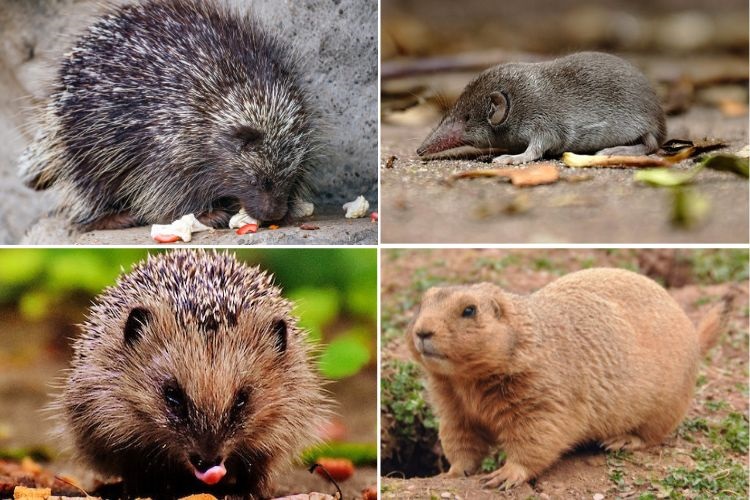You’ve heard of people who have a Doberman Pinscher or a Siamese cat which are both majestic animals in their own right. What may surprise you is there are more than a few people living with bats, deer, and even giraffes since exotic pets in Florida are all the rage.
That’s right, get out your camera. We’re going for a safari ride from Tallahassee to Key West to see exactly what kinds of animals are allowed to live in dining rooms.
Are there exotic pets that are off-limits in Florida? What does the law say about these family menageries? Is it really a good idea to sleep with a coyote in your bed?
Let’s dig around to find out whose paws and hooves keep the neighbors awake at night.
Overview Of Exotic Animals In Florida
So you want to own a skunk? You’re in luck (and you’re braver than me). Florida allows wild species to be owned as a pet. In fact, this state is a virtual zoo when it comes to the number of animals allowed by law for you to keep as pets.
Just be prepared for the hoops that must be jumped through and the regulations you must adhere to if you’d like to be known as Dr. Doolittle.
Things like, it’s perfectly fine to own certain species as pets in Florida, but if you want to take them out and about (unless you’re going to the vet or traveling), you’ll need a special permit.
There are exotics that don’t require a permit or a license. Animals like:
- Hedgehogs
- Honey Possums
- Chipmunks
- Shrews
- Prairie dogs
Keep in mind:
“Animals from the wild (including injured, orphaned, or abandoned native animals) are NEVER eligible to be kept as personal pets in Florida. Personal pet permits are only issued for animals which are captive-bred and are obtained from a legal, licensed source.” – Florida Fish and Wildlife Conservation Commission (FWC)
A captive wildlife application starts the process to own, sell, or exhibit mammals, birds, reptiles, and amphibians. Now let’s get down to the animal information business.
List of Legal Exotic Pets in Florida
Below is a list of legally allowed exotic animals in Florida.
Bats
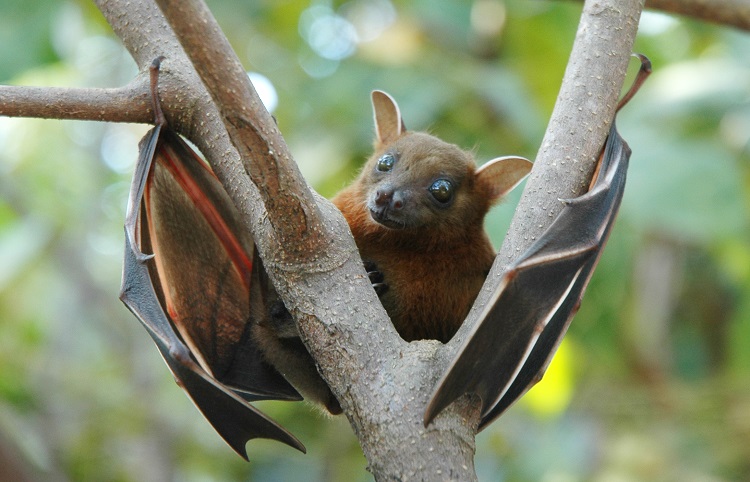
Did you know bats have distinctive imprints on their wings? Just like our fingerprints, they identify each bat. So you’ll never mistake Vladimir for Dracula.
Bats need special care with unique enclosures, nutritional needs, and plenty of space.
Although you can’t take one from the wild in Florida, you can welcome one as a pet. (I guess the “Fly by Night” bat shelter stays busy.)
New Guinea Singing Dog
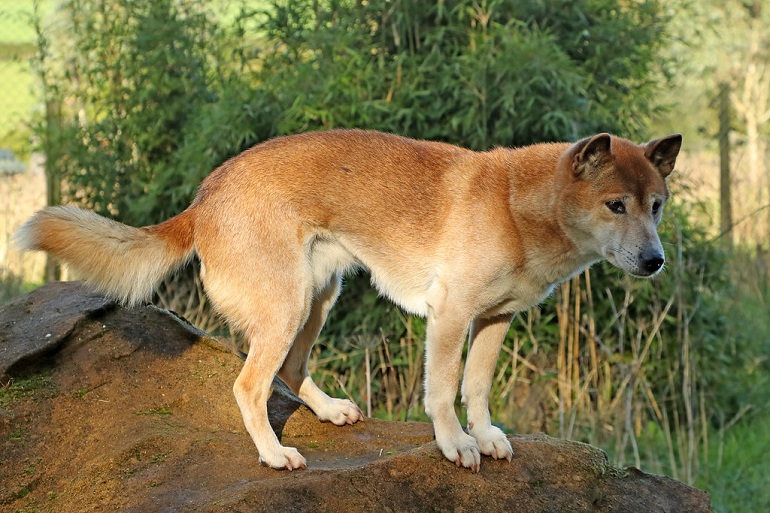
These rare, flexible canids are known for their unique howls that have been compared to humpback whales. They’re from Papua New Guinea and can be domesticated, but it’s discouraged due to their instinctual desire to hunt and roam.
In 2018, Palm Beach Florida Weekly reported there were two Singing Dogs rescued by a sanctuary. An employee took them home and said they were trained to use the litter box…Move over, Felix.
Deer
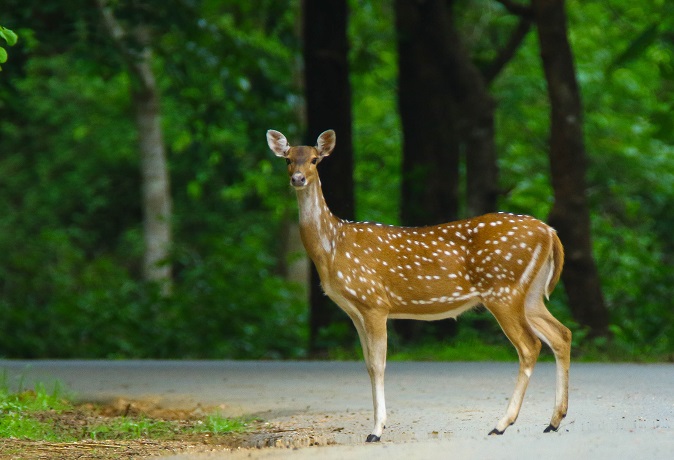
Who wouldn’t want Bambi-eyes staring at you every morning when you wake up? It is legal in Florida to bring a deer inside, and they can learn to follow a human around, but these wild animals should be free to live in wide open spaces.
Random fact: Florida allows motorists to possess deer that have been killed by a vehicle collision. (Hope you’ve already eaten your breakfast.)
Sloth
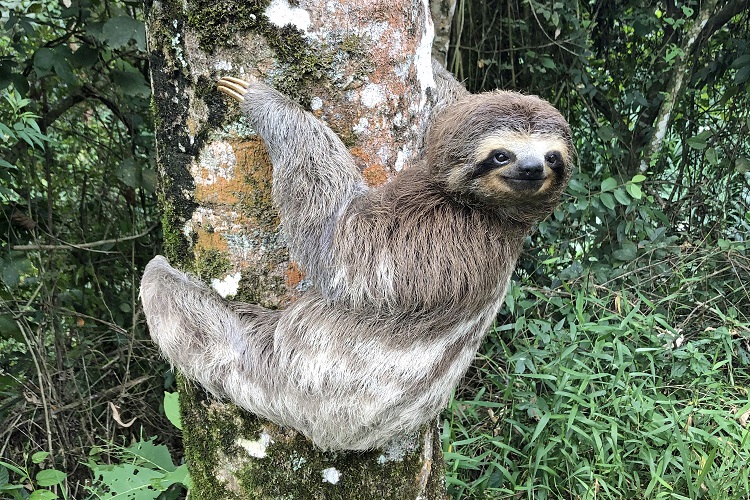
You need to obtain a Class III permit to own a sloth in Florida that will ask questions about the pet and where you’re going to keep it. The FWC likes to know these things.
Sloths may seem highly docile, but they are still wild animals. Those claws weren’t made for nothin’.
Asian Leopard Cat
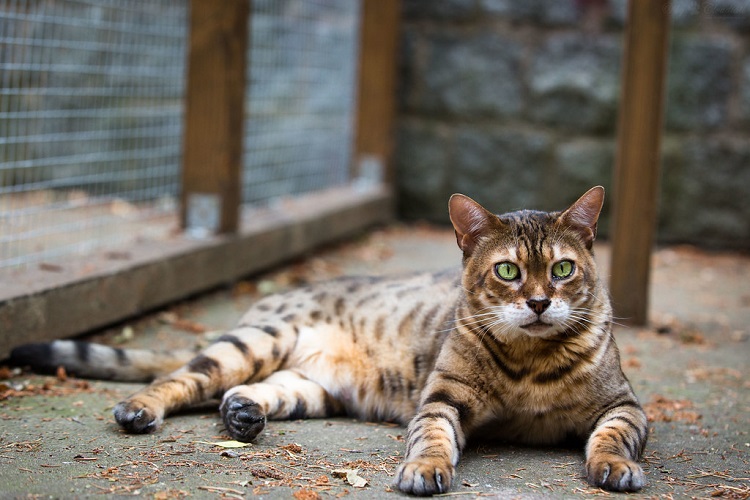
Although the Bengal cat comes from a hybrid of the Asian Leopard cat, the Bengal is domesticated, and the Asian Leopard cat is not.
This wild cat is strikingly beautiful, which draws people to them. The species, plentiful in Asia, requires large outdoor enclosures and plenty of physical and mental stimulation to thrive.
Marmoset
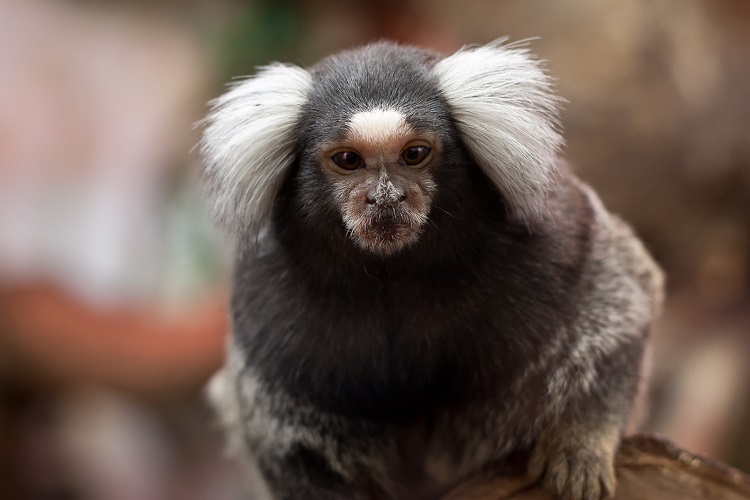
Called “Finger monkeys” due to their size and the Pygmy marmoset’s ability to wrap herself around your finger quite literally, they’re temperamental critters. But if you’re into an animal that’s highly vocal and throws things a lot, have at it.
They prefer living in groups of 6-9 Marmosets and eat mostly tree gum (though they love a good insect when they can find one).
Foxes
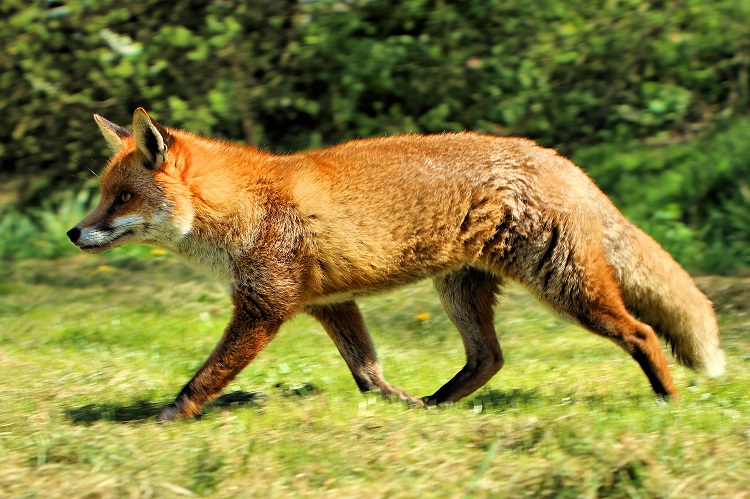
Foxes are wild animals that need a Class III wildlife permit. Their home range isn’t more than five miles in diameter, but they’ll stay much closer (0.5 miles) when kits are on the way. They are not domesticated, and even if they’re living in the home can easily revert to wild animal behavior.
Most red foxes in the wild live 3-5 years, and foxes in captivity can live over ten years old—um…pro tip. If you have chickens, get a hamster.
Wolves
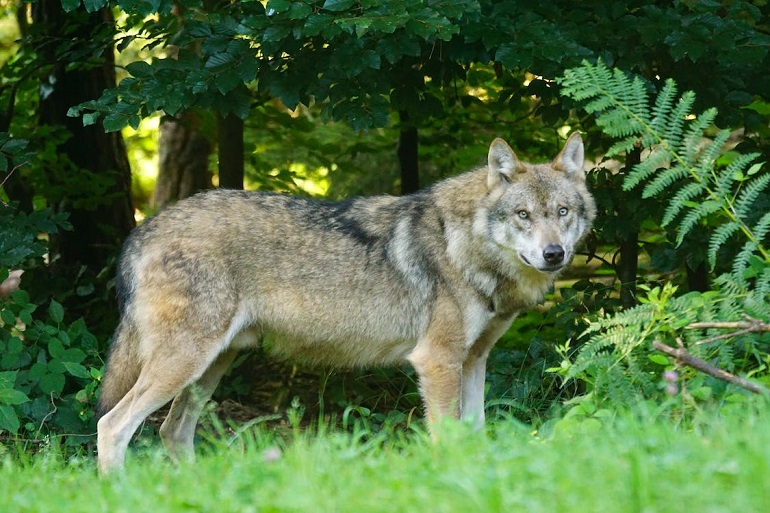
Particularly due to a wolf’s appearance and physical similarity to dogs, people think they can scoop one up, slap a collar on her, play a game of fetch, and everything will be fine. But that’s not the case.
In the wild, wolves will eat an entire deer – fur, bones, and all. A can of Alpo won’t quite cut it. But what about hybrids? Or a wolf that has mated with a dog?
Florida law says:
“Wolf-dog hybrids are regulated on a case-by-case basis. Wolf dogs considered to be indistinguishable from a wolf will be regulated as a Class II canid and require a Class II license for possession.”
Coyotes
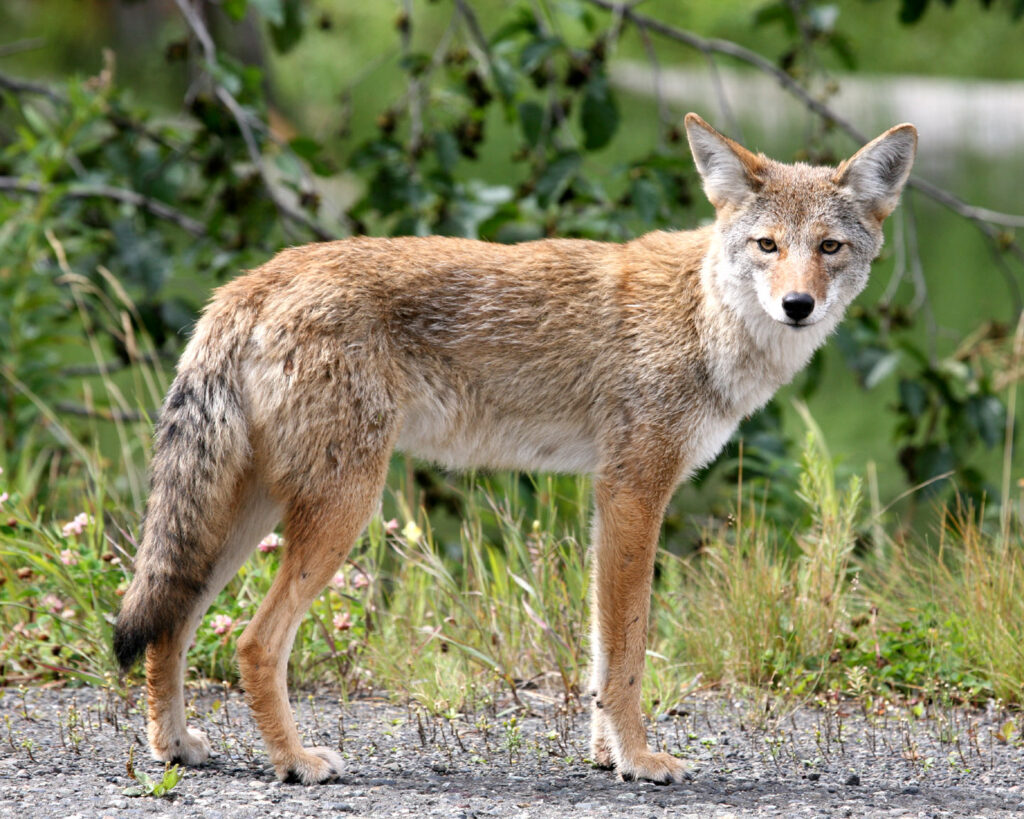
Although coyotes and wolves (in particular, the Gray Wolf) are both carnivores that hunt in packs, there are significant differences between the two species. Coyotes are considerably smaller than wolves. They have narrow snouts with large ears relative to their head size.
It would be a mistake to think one could approach a coyote as you would a dog. Coyotes are not domesticated. They can be erratic; they’re quick and extremely cunning.
Jackals
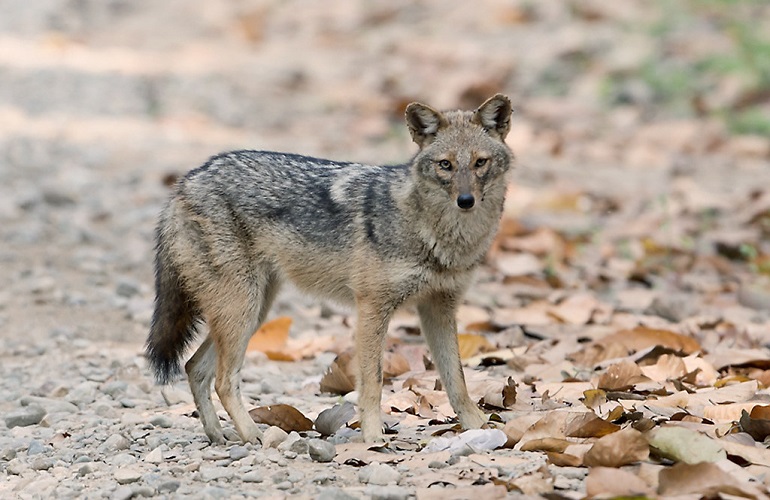
Jackals are also canids. They are native to Africa and aren’t really particular about their diets. They’re opportunistic omnivores and eat everything from small antelopes and reptiles to berries and grass.
You’ll need a Class II wildlife permit to own one in Florida.
Squirrels
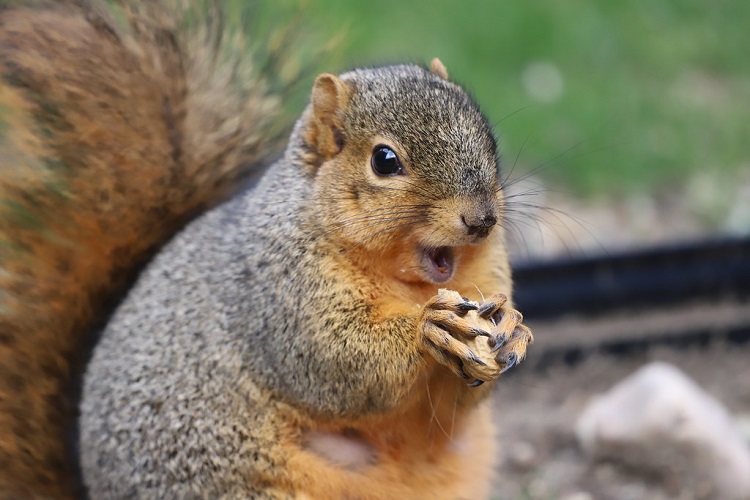
Squirrels do not require a permit to own in Florida. These intelligent creatures use a combination of smell and spatial memory to locate where they buried hundreds of nuts. If they were captive, this instinctive behavior would be ignored.
They have four front teeth that grow continuously so as not to be eradicated from frenzied chewing. (Sounds like someone I know.)
Skunks – (Class III Wildlife Permit)
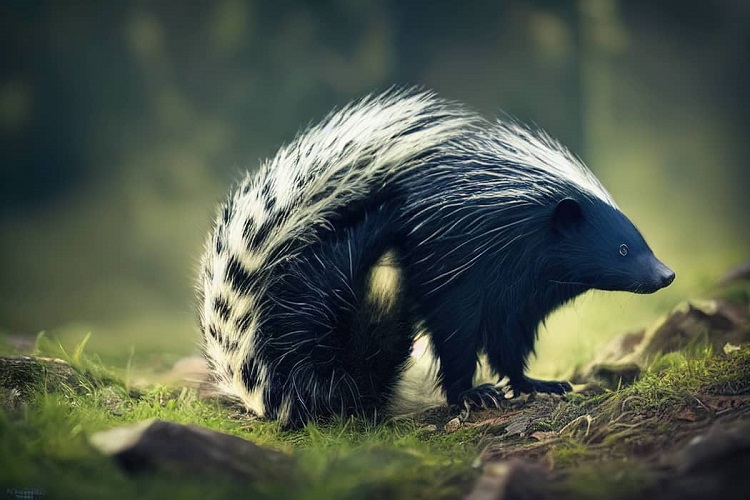
If you decide to own a skunk in Florida, you might decide to have their musk “de-scented,” but this can be deadly for them if they go outside (protection against prey) and can even be painful when they try to release it. In the wild, a skunk can hit a target 12 feet away, so it’s quite the weapon.
Ocelots

It would be wise to allow these gorgeous cats to live in the wide-open natural world. They climb trees, are opportunistic carnivores (“If I can catch you, I’ll eat you.”), and enjoy habitats with intense cover/vegetation.
They stroll slowly within their home range looking for prey but also have the patience for the “sit and wait” tactic and will wait for ½ hr – 1 hr at a time.
Giraffe
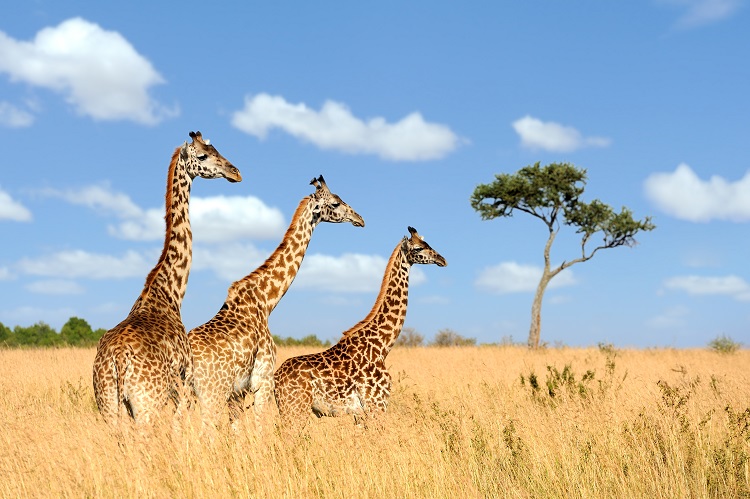
Since you can’t own a giraffe as a pet in Florida, which would really only be for your status or ego, most giraffes are owned to be put on exhibition.
The tallest of all land animals, these magnificent beauties have a home range of 33 sq miles (in wetlands) up to 580 sq miles (in dry areas)! So to enclose this wild creature in captivity would be a travesty.
Okapi (Oh-COP-Ee)
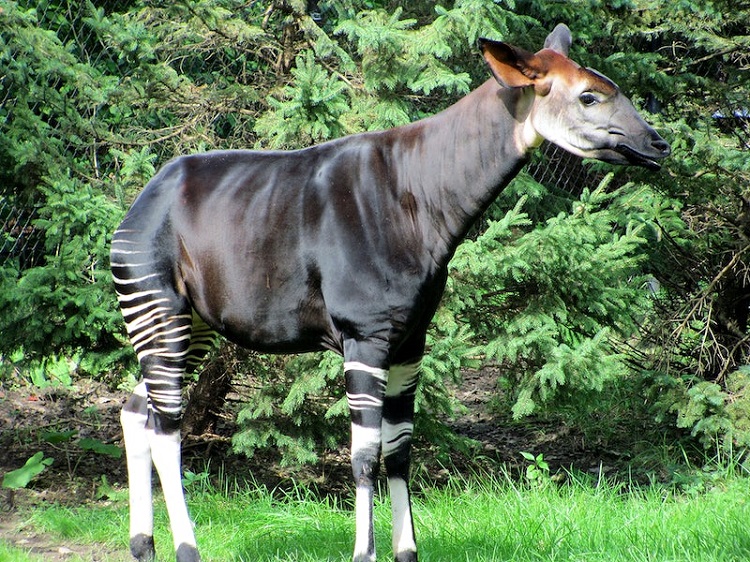
Okay, so they might look a little funny, don’t we all, but this lovely animal known as the “forest giraffe” is also the giraffe’s only living relative. They’re highly elusive and have incredible hearing abilities. Females only vocalize when they’re ready to breed. Or so we think. Researchers discovered rich information from recordings:
“…calls are so low, in fact, that we humans cannot hear them at all! It’s only when we look at recordings via specialized computer software that these infrasonic mutterings become visible.” – San Diego Zoo
Langurs, Douc Langurs
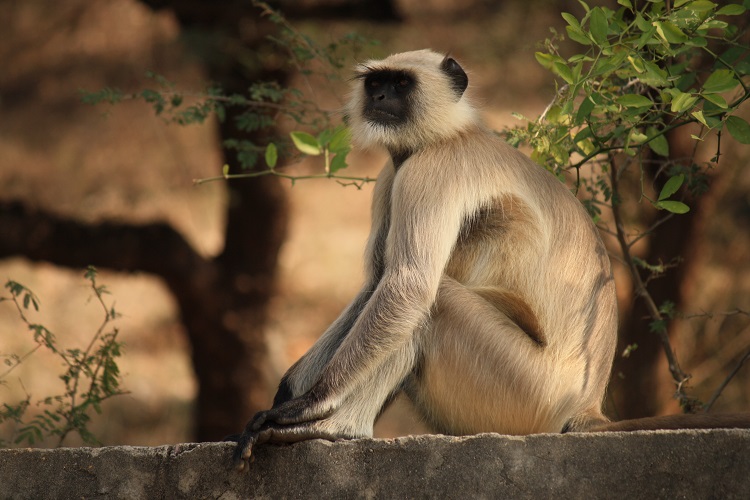
Douc Langurs are critically endangered and decreasing in number due to habitat loss and hunting. They’re hunted for food, for use in medicine, and to be sold as pets. There are all types of other langurs that are endangered on the IUCN (International Union for Conservation of Nature) Red List as well.
They eat leaves, fruits, bark, and blossoms. They come from a huge family of primates that includes baboons. Their amazingly long tails help them balance and jump through the forest canopy – True wild animals at heart.
Howler Monkeys
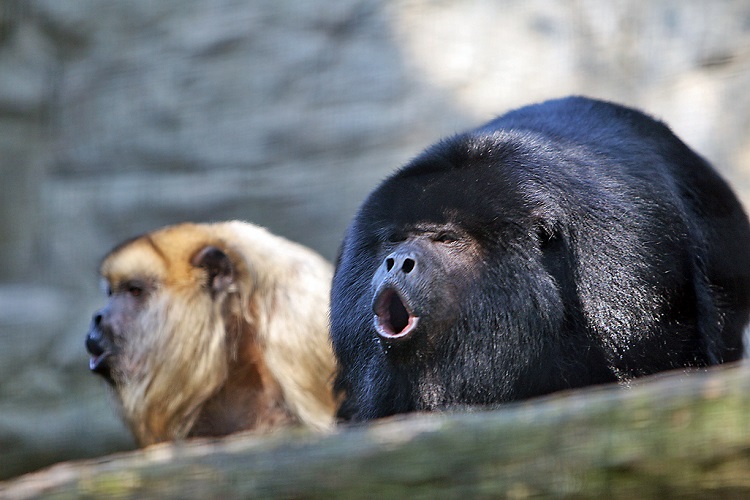
…Because their voices carry for 2-3 MILES. They’re not the shy type. Hopefully, their noisy personalities deter people from wanting to have them as pets. They are slow-moving and sit on the highest branches, rarely descending to the ground.
Sugar Gliders
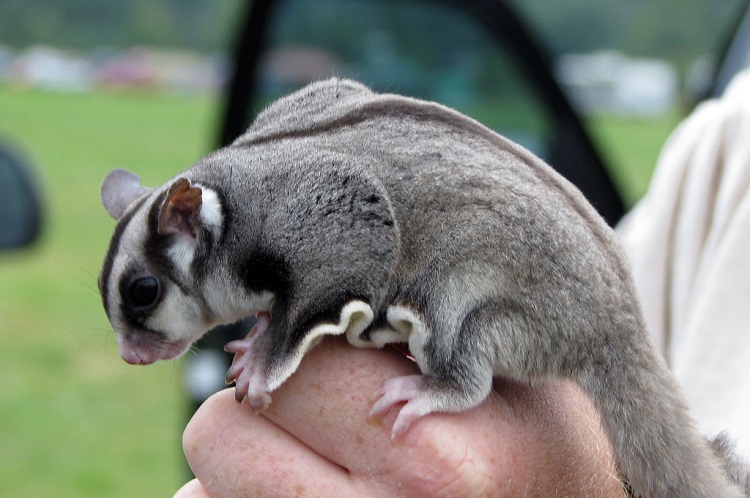
Sugar gliders, gliding possums, and not rodents do not require a permit to own in Florida. The only three states that don’t allow you to own a sugar glider are Alaska, Hawaii, and California. Gliders are originally from Australian rainforests.
Can you imagine being able to glide half the length of a football field through the air but being unable to since you’re in captivity? We can’t either.
Raccoons
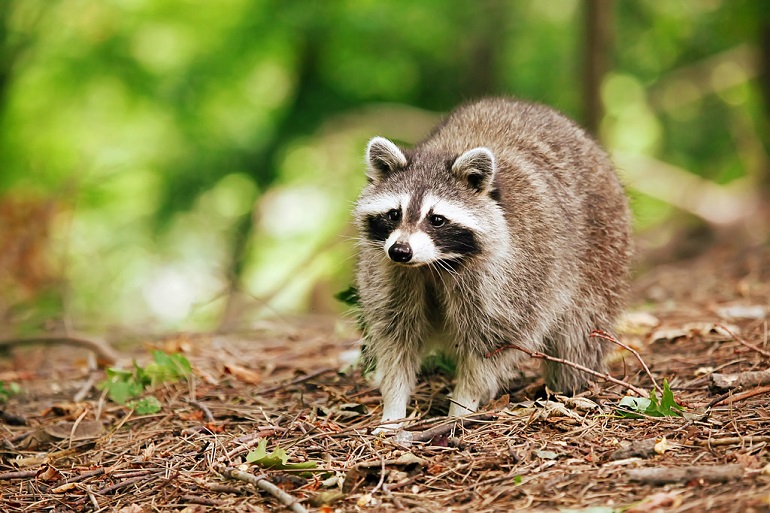
Raccoons are a Class III wildlife animal, meaning no permit is required to own one. However, they can be aggressive, carry rabies, bite and scratch, and are generally unpredictable.
They eat both meat and plants (omnivores) and are wildly adorable, thus attracting many people who want to have one as a pet.
Exotic Pet Laws in Florida
- “Captive wildlife is regulated by the Florida Fish and Wildlife Conservation Commission’s Captive Wildlife Office.”
- “Hybrids are regulated the same as their more restricted parent.”
- “Captive wildlife permits apply only to mammals, birds, reptiles, and amphibians.”
- The Captive Wildlife Office does not regulate native species designated as Endangered or Threatened in Florida.
Good and Bad Aspects of Florida Exotic Pet Laws
Here are the good and bad sides of exotic pet laws in the state.
The Good
- Endangered animals are protected from being owned.
- There are at least some restrictions in place, depending on which exotic animal it is, that protect the animals.
- Having the wherewithal to apply laws to hybrids is also a good thing.
The Bad
- Oversight seems to be nonexistent. There are just too many private exotic animal owners for proper law enforcement.
- The only listing of Class I or II wildlife to have restrictions is about elephant rides. However, thousands of animals in Florida are being exploited in roadside “shows” and circuses that are often caged and abused. They need protection.
- Fish should be protected by the same agency.
In My Opinion
Florida officials have been bombarded in the last decades by animal humane groups for allowing so many wild/exotic animals to be kept as pets.
In the government’s efforts to straddle the fence between allowing personal freedoms and pacifying animal advocates, the wording of their laws and regulations can be confusing.
What we decipher is that you can be an exhibitor of some species listed as Class I or Class II (if they are bred in captivity) but not a personal owner to have one as a pet. Bottom line – All regulations regarding owning an exotic animal should be crystal clear.
See below for animal classifications.
License For Exotic Animals
A permit or license is required to possess, sell, or exhibit wildlife in most cases in Florida. Depending on an exotic’s size, breed, predictability, temperament, and more, they are grouped into categories.
Class I Wildlife as a Personal Pet
“Class I wildlife is a defined list of species that are considered to present a real or potential threat to human safety. Possession of Class I wildlife requires a license. Due to the nature and habits of Class I species, Class I wildlife may not be possessed as a personal pet. Substantial experience requirements, specific cage requirements, and proof of commercial activity must be met before a license will be issued.”
Species That Are Designated As Class I Are
- Tigers
- Lions
- Crocodiles
- Elephants
- Rhinos
Just a few of the many Class I animals. To acquire one, you must go through stringent procedures, including inspections and habitat requirements.
- You must document 1,000 hours of experience working with the particular species or another species in the same biological family and class you’d like to have as a pet.
- You must submit two letters of reference from someone who knows the work you’ve done (firsthand knowledge) with the species. They must be a Florida wildlife license holder, a representative of a professional organization or governmental institution, or a veterinarian.
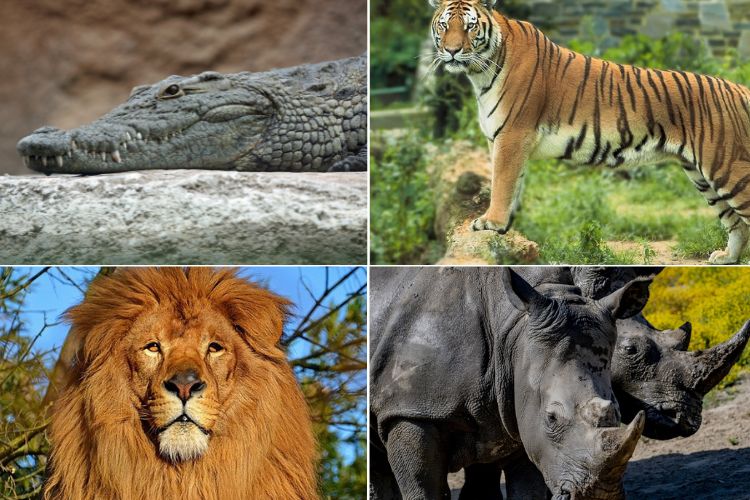
Class II Wildlife as a Personal Pet
“Possession of Class II wildlife for personal or commercial purposes requires a license. Substantial experience requirements and specific cage requirements must be met before a license will be issued.”
Species that are designated as Class II are:
- Certain big cats, such as the Bobcat and Ocelot
- Certain monkeys, such as the Guereza and Patas
- Wild cattle
- Wolves
- Coyotes
…Just a few of the many Class II animals. You must go through strict procedures, including inspections and certain requirements, to get a permit (including the two listed under Class I).
Class III Wildlife as a Personal Pet
Because the list would be so large, there’s nothing official that states all of the wildlife included in Class III, but here are a few:
Species That Are Designated As Class III Are
- Exotic birds (parrots, parakeets, finches)
- Small mammals (foxes, skunks, raccoons, lemurs)
- Many reptile species (snakes, lizards, turtles, tortoises)
- All amphibian species (frogs, salamanders, etc.)
The following species are considered domestic, are not considered Class III wildlife, and are not regulated by the FWC:
- Domestic cats and dogs
- Hamsters
- Guinea pigs
- Domestic rats and mice
- Cattle
- Horses
- Domestic pigs
- Poultry
- Peafowl
- Llamas
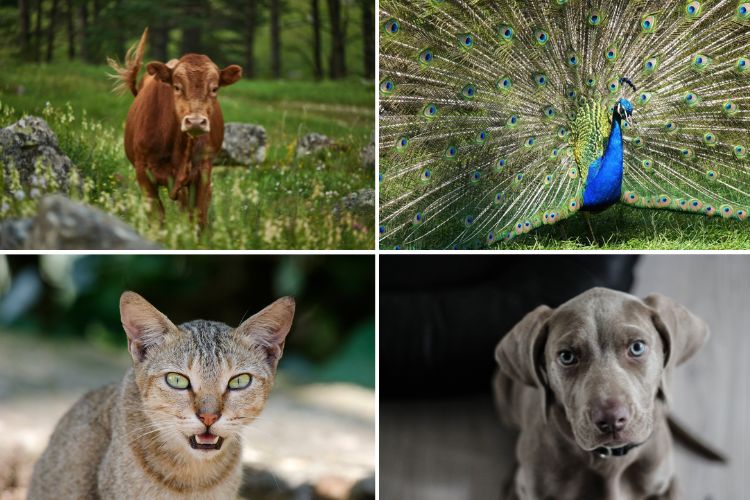
Venomous Reptiles as a Personal Pet
Venomous snakes are not suitable to keep and are illegal to have as a pet in Florida. Although the following is on the FWC’s website…
“Any snakes in the family Hydrophiidae are Prohibited and are not authorized for possession on a venomous reptile license.”
…they also include what follows in the same public information…
“Anyone wishing to possess venomous reptiles must….”
It then includes the two instructions listed above under Class I and Class II species. I take this to mean venomous snakes are only allowed to be owned for educational and/or exhibition purposes.
What Does It Require to Get a Class 3 Permit?
- Documentation of experience is required for Capuchin, Spider, & Woolly monkeys as stated in Rule 68A-6.0022, F.A.C.
- Personal Pet questionnaire required for Class III wildlife requiring a permit for possession and if being possessed as a pet only.
FAQ’s
If I Find a Baby Raccoon in Florida and Take It in to Help It Get Better, but It Refuses to Leave, What Do I Do?
“The most responsible thing at this point is to bring them to a licensed raccoon rehab facility. They have both the licensing and the tools/experience to care for the baby raccoon correctly.” – Humane Wildlife Removal
Is It Legal to Own a Monkey in Florida?
The FWC states…
“A permit or license is required to possess, sell, or exhibit wildlife in most cases.”
From what we can determine, certain Class I and Class II monkeys are allowed to be owned.
Regarding Endangered monkeys (to reiterate)…
“The Captive Wildlife Office does not regulate native species designated as Endangered or Threatened in Florida.”
Can you own a kangaroo in Florida?
Yes, you can own a kangaroo with specific documents and other qualifications from the FWC. It is considered to be a Class I wild animal.
Are hedgehogs legal in Florida?
Yes. Hedgehogs are considered Class III animals and need no permit or license to be owned.
Are Axolotls legal in Florida?
This (cutie-pie) amphibian is legal to have as a pet in Florida and is considered a Class III animal. No permit is necessary.
Axolotl Central makes the following comment about the curious-looking creature:
“Pet axolotls have been bred in captivity for decades, to the point where they are no longer the same as axolotls found in the wild, both genetically and behaviorally.”
In Conclusion
Right or wrong, oodles of wild/exotic animals live as pets in Florida. Some people love their companionship, and some enjoy the “ooh-ahh” reaction factor.
We, as animal lovers, simply want what’s best for the animals. And it would take a lot of convincing to believe that having a monkey within reaching distance of you from your couch is what’s best for them.
Depending on your stance, Florida residents are either very lucky to have such an extensive list of exotic animals to choose from to be pets, or you believe wild animals need to remain what they’re born to be…Wild.
But we can all agree on this: Exotic animals bring unending educational opportunities and joy to our lives. And for that, we’re forever grateful.


